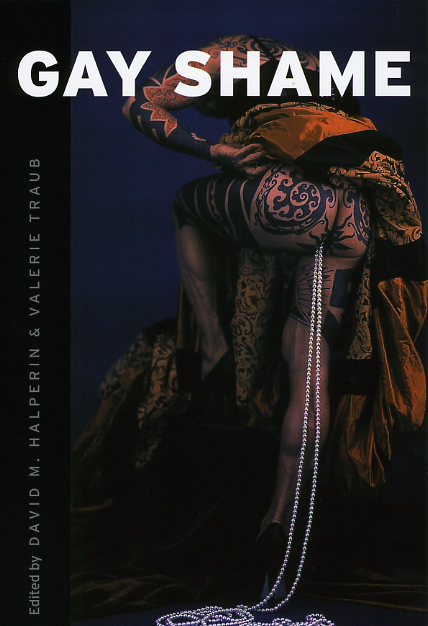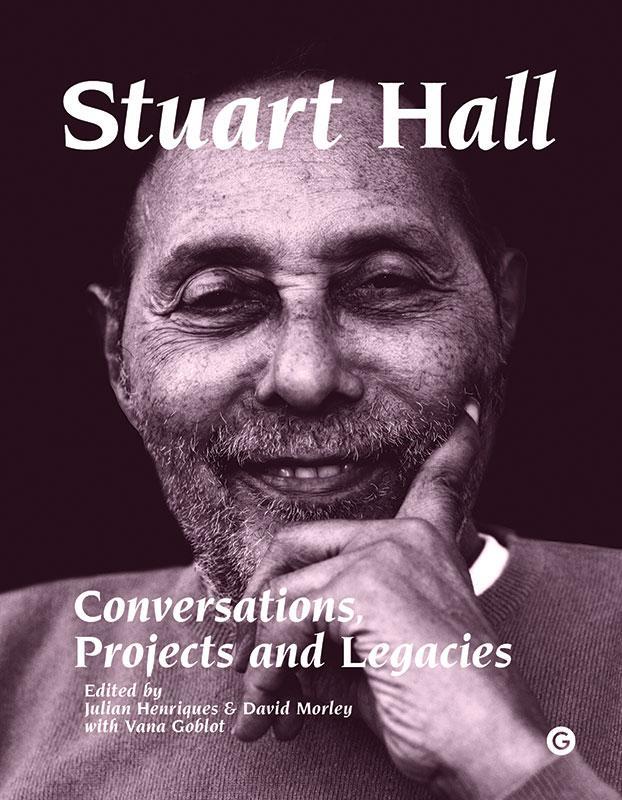David M. Halperin, Valerie Traub (eds.): Gay Shame (2009)
Filed under book | Tags: · identity, lgbtq, queer, queer theory, theory

“Ever since the 1969 Stonewall Riots, “gay pride” has been the rallying cry of the gay rights movement and the political force behind the emergence of the field of lesbian and gay studies. But has something been lost, forgotten, or buried beneath the drive to transform homosexuality from a perversion to a proud social identity? Have the political requirements of gay pride repressed discussion of the more uncomfortable or undignified aspects of homosexuality?
Gay Shame seeks to lift this unofficial ban on the investigation of homosexuality and shame by presenting critical work from the most vibrant frontier in contemporary queer studies. An esteemed list of contributors tackles a range of issues—questions of emotion, disreputable sexual histories, dissident gender identities, and embarrassing figures and moments in gay history—as they explore the possibility of reclaiming shame as a new, even productive, way to examine lesbian and gay culture.”
Publisher Chicago University Press, 2009
ISBN 9780226314372, 0226314375
x+395 pages
via Flux
Reviews: Victor Stepien (Journal of Homosexuality, 2012), Karsten Schubert (hugs&kisses, 2012, DE).
PDF (6 MB, updated on 2021-1-10)
Comment (0)Stuart Hall: Conversations, Projects and Legacies (2017)
Filed under book | Tags: · black people, cultural studies, diaspora, identity, marxism, neoliberalism, politics, racism

This book “examines the career of the cultural studies pioneer, interrogating his influence and revealing lesser-known facets of his work. This collection of essays and photographs evaluates the legacies of his particular brand of cultural studies and demonstrates how other scholars and activists have utilised his thinking in their own research.
Throughout these pages, Hall’s colleagues and long-term collaborators assess his theoretical and methodological standpoints, his commitment to the development of a flexible form of revisionist Marxism, and the contributions of his specific mode of analysis to public debates on Thatcherism, neoliberalism and multiculturalism. North American activist Angela Davis argues that the model of politics, ideology, and race initially developed by Hall and his colleagues in Birmingham continues to resonate when applied to America’s racialized policing. Further essays focus on Hall’s contributions to contemporary political debate as well as questions of race, ethnicity, identity, migrancy and diaspora. Others discuss Hall’s continuing involvement in issues of representation and aesthetics in the visual arts, particularly photography and film.
With contributions from Britain, Europe, East Asia, and North and Latin America, Stuart Hall: Conversations, Projects and Legacies provides a comprehensive look at how, under Hall’s intellectual leadership, British cultural studies transformed itself from a form of ‘local’ knowledge to the international field of study we know today.”
Contributors: John Akomfrah, Avtar Brah, Charlotte Brunsdon, Iain Chambers, Kuan-Hsing Chen, John Clarke, James Curran, Angela Davis, David Edgar, Lawrence Grossberg, Catherine Hall, Dick Hebdige, Tony Jefferson, Robert Lumley, Mahasiddhi (Roy Peters), Doreen Massey, Angela McRobbie, Caspar Melville, Frank Mort, Michael Rustin, Bill Schwarz, Mark Sealy, Liv Sovik, Lola Young.
Edited by Julian Henriques and David Morley with Vana Goblot
Publisher Goldsmiths Press, London, 2017
ISBN 9781906897475, 1906897476
322 pages
Reviews: Ashleigh McFeeters (LSE blogs, 2018), Karen Wilkes (Media Theory, 2019).
PDF (33 MB, updated on 2021-4-13)
PDF (12 MB, accepted manuscript)
Precarity Lab: Technoprecarious (2020)
Filed under book | Tags: · care, class, gig economy, labour, precarity, technology, work

“An analysis that traces the role of digital technology in multiplying precarity.
Technoprecarious advances a new analytic for tracing how precarity unfolds across disparate geographical sites and cultural practices in the digital age. Digital technologies—whether apps like Uber, built on flexible labor, or platforms like Airbnb that shift accountability to users—have assisted in consolidating the wealth and influence of a small number of players. These platforms have also exacerbated increasingly insecure conditions of work and life for racial, ethnic, and sexual minorities; women; indigenous people; migrants; and peoples in the global south. At the same time, precarity has become increasingly generalized, expanding to include even the creative class and digital producers themselves.
This collaboratively authored multigraph analyzes the role of digital technology in multiplying precarity. The authors use the term precarity to characterize those populations disproportionately affected by the forms of inequality and insecurity that digital technologies have generated despite the new affordances and possibilities they offer. The book maps a broad range of digital precarity—from the placement of Palestinian Internet cables to the manufacture of electronics by Navajo women and from the production and deployment of drones on the U.S.–Mexico border to the technocultural productions of Chinese makers. This project contributes to, and helps bridge, ongoing debates on precarity and digital networks in the fields of critical computing, postcolonial studies, visual culture, and information sciences.”
Publisher Goldsmiths Press, London, November 2020
Creative Commons BY-NC-ND 4.0 International License
ISBN 9781912685981, 1912685981
xi+113 pages

